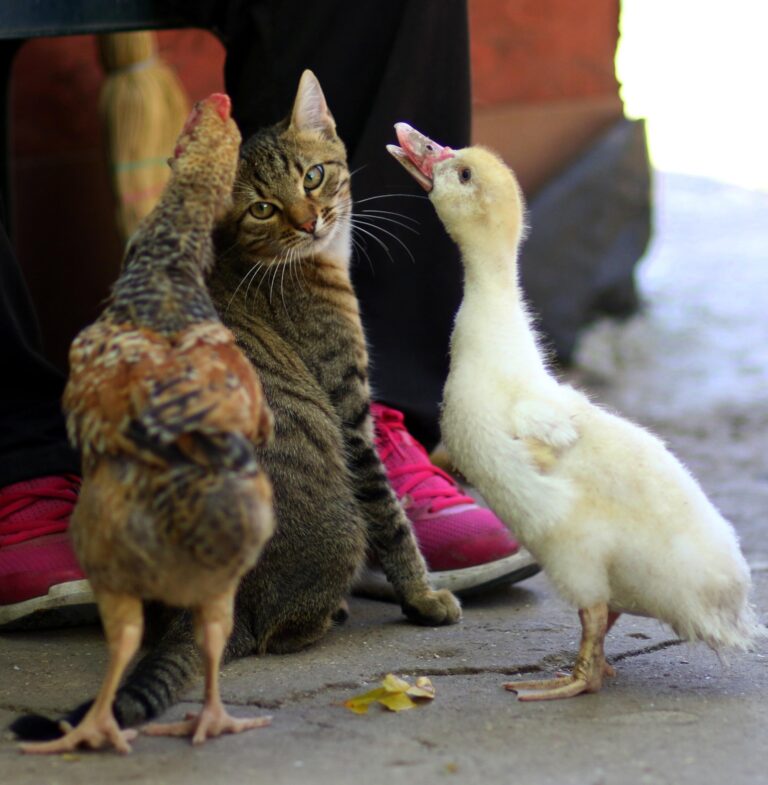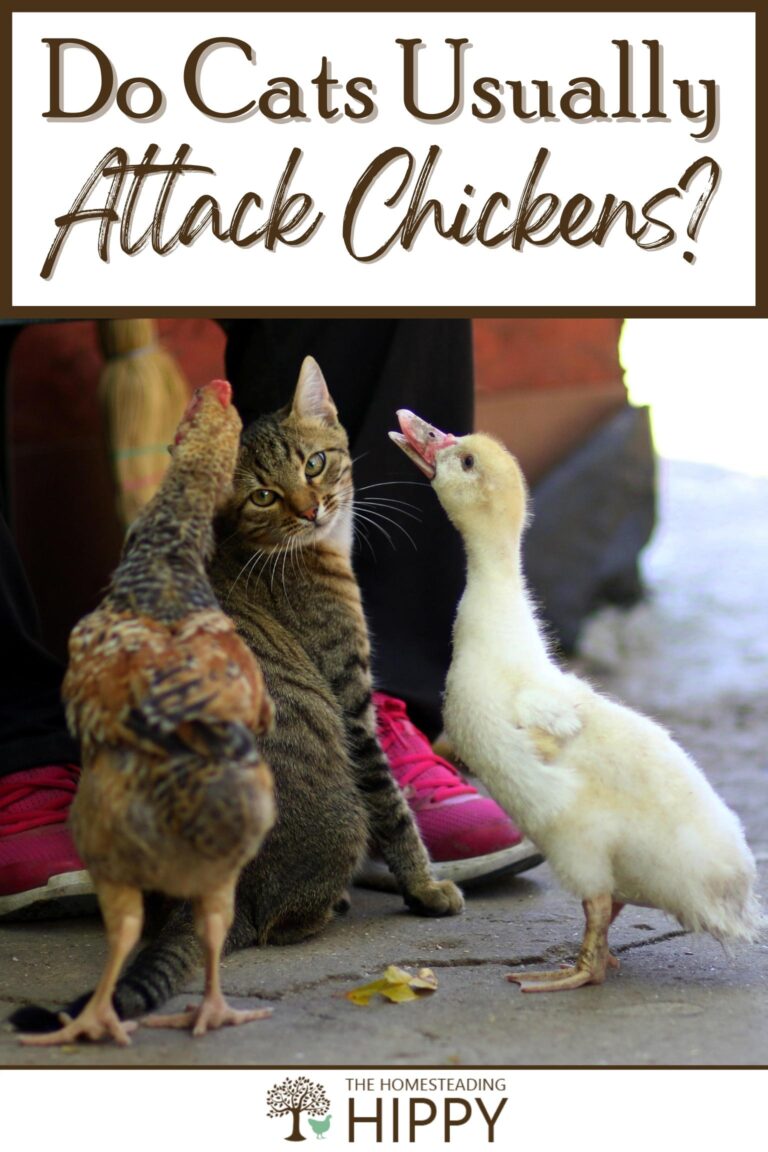Homesteaders, like everyone else, enjoy having pets – after all, they need cuddle therapy too occasionally. Of course, you’ll have to take certain precautions around your pets and keep them away from your livestock.

While they’re a popular choice of pet, cats will sometimes go after birds. This can pose a serious problem for chicken farmers.
You don’t want to lose any egg-laying hens. So, here’s the question: do cats usually attack chickens?
No, cats won’t usually attack chickens but they may hunt baby chicks, though it’s better to be safe than sorry. They prefer smaller prey, and an adult chicken will put up quite a fight and do some damage.
If they attack an adult chicken, it’s usually out of desperation for food.
Cats are Carnivores but Prefer Smaller Prey
While they are carnivores, cats would have to be pretty desperate to go after an adult chicken.
Look at the size of your chickens – the adults – they’re not small. Adult chickens can be about the same size as a cat (unless we’re talking about a cougar).
A cat who picks a fight with an adult chicken either the rooster or one of the hens is just as likely to be injured in the attempt as the birds they’re trying to hunt.
Now, chicks are another story. Baby chicks are small, and this makes them easy prey.
Obviously, a smaller animal is less likely to be able to defend itself thereby reducing the cat’s risk of injury.
Small birds and rodents are often preferred prey – some cats will even catch bats…yes, really.
The Difference between Feral Cats and Domesticated Cats
there’s a huge difference between Fluffy who sits in the window all day watching the grass grow and a wild or feral cat that’s been living off scraps from your garbage.
If a house cat gets into your brooder, it’ll probably kill multiple chicks at once purely because of its size. A house cat stomping around is certainly going to squash a few chicks.
Of course, that’s an accident and the kitty is likely to bring you one of the birds as a sort of gift…I didn’t know this was a thing until a few years ago but it doesn’t make it less creepy. Feral cats are more likely to stalk the chicks and eat them.
Risks and Benefits of having Cats around your Brooder
Obviously, there are going to be a few risks when you’ve got cats around your henhouse.
If they get into it, they can injure or eat your chicks and yes, there is a chance they’ll kill some adult chickens.
As far as benefits go, they’re great rodent control; hunting the rats and mice that are attracted by leftover chicken feed.
This is great because rodents can carry diseases and parasites which can cause serious health risks for your birds.
There’s also the added benefit of snakes being less likely to show up uninvited to your property – many snakes feed on rodents so no rodents mean no food.
If there’s no food in the area, then there’s no reason for a snake to move in and make itself comfortable.
Cats will also chase off any wild birds that drop in uninvited.
Keeping Your Birds Safe
Apart from cats, you also have to worry about certain birds of prey, cougars, foxes, snakes, dogs, and a few other predators.
You can do this by ensuring that your brooder has a solid protective screen on the openings so nothing can get into it. You should also use hardware cloth for your chicken run.
You should also ensure that you have a strong, high fence – ideally with a roof to keep the cats from jumping over the fence.
It’s also a good idea to lock your birds up at night – just in case.


Greg spent most of his childhood in camping grounds and on hiking trails. While he lives in the suburbs nowadays, Greg was raised on a small farm with chickens. He’s a decent shot with a bow, and a huge knife enthusiast. Find out more about Greg.

I moved to a house many years ago. We had a house cat that, as far as I can remember, never was allowed to roam outside since we had previously lived in an apartment.
The home we moved to had been rented by a person who had owned chickens. By the time we arrived, a solitary hen remained.
On the morning after we moved in, I opened the front door. On the doorstep was the hen. Our cat, who was at our feet, froze, never having seen anything like a hen. Slowly, the hen turned and began to walk away. Sensing the the hen was not a cat-eating critter, the cat leaped about six feet onto the hen’s back. The hen then ran around the yard with the cat on her back.
I was able to separate them and bring the cat inside. The cat did not appear to be worse for the wear. That was the last time the cat got out.